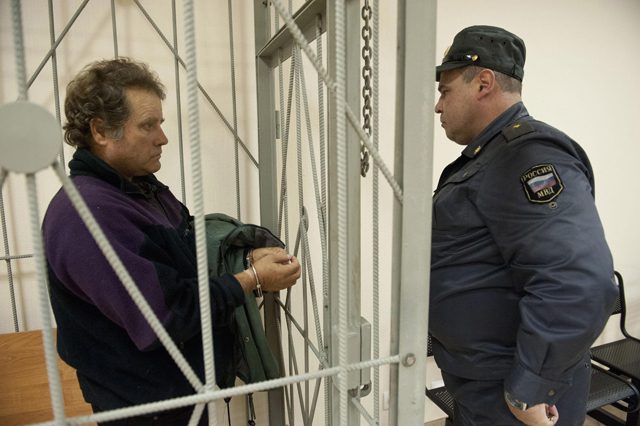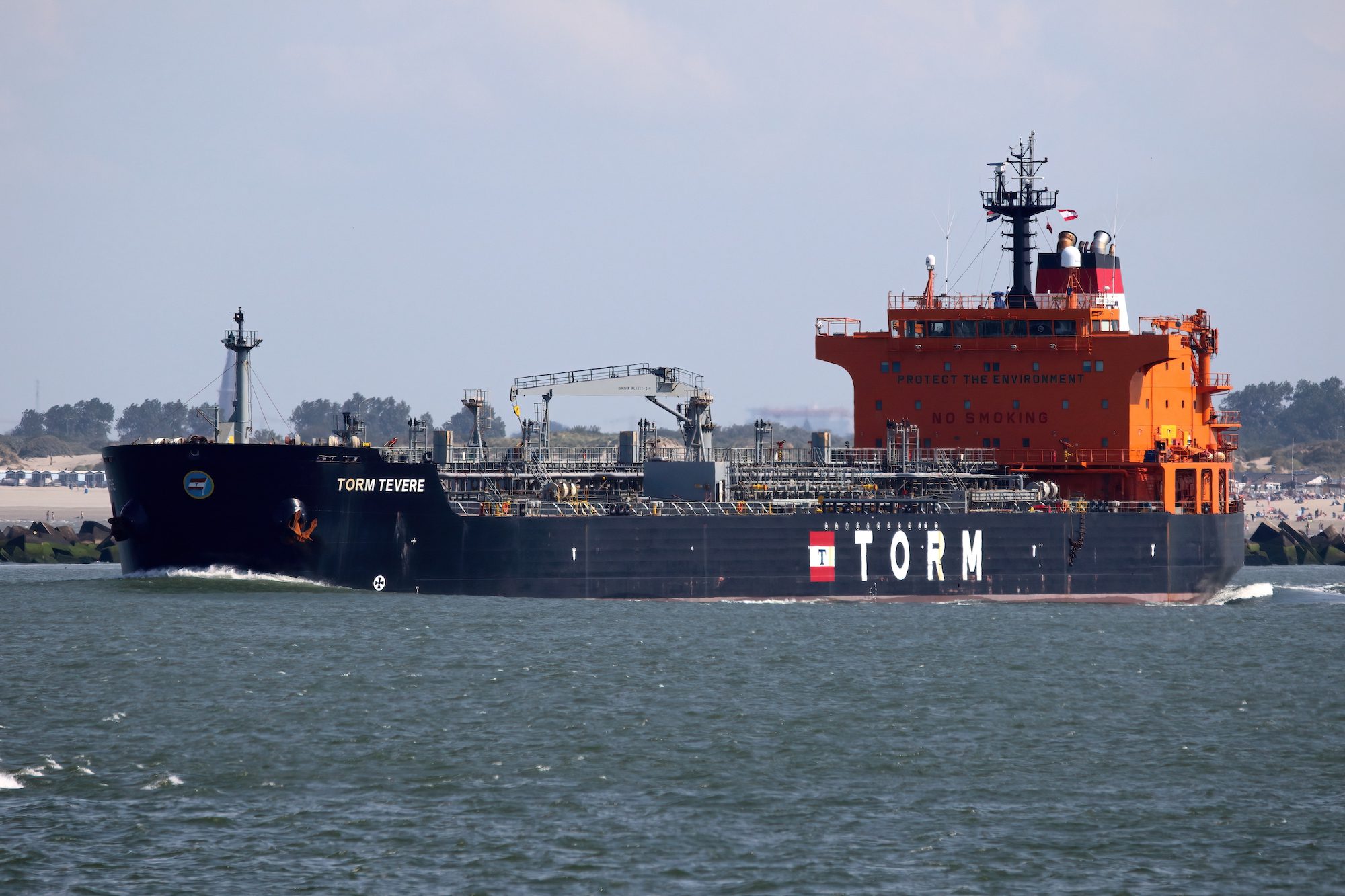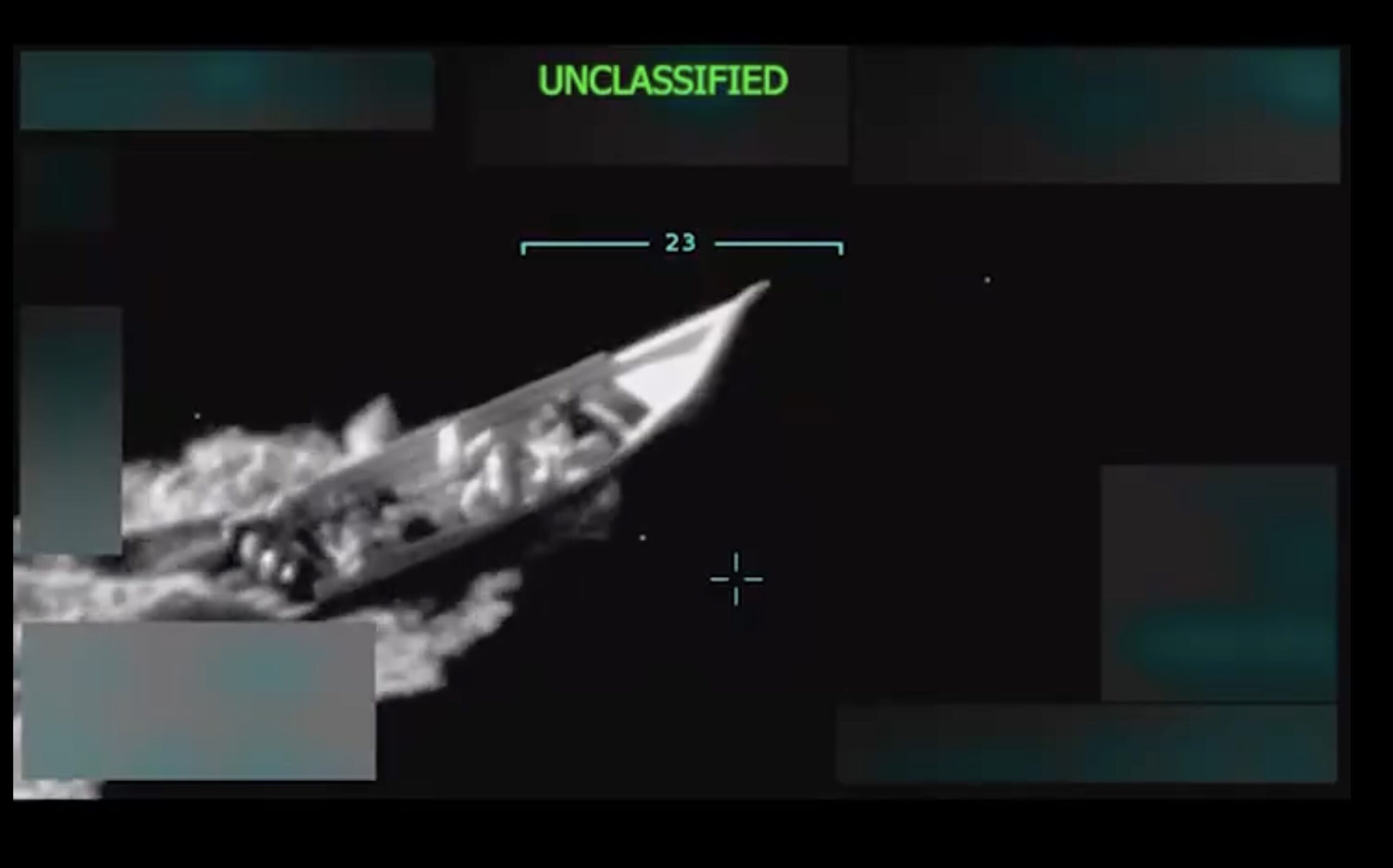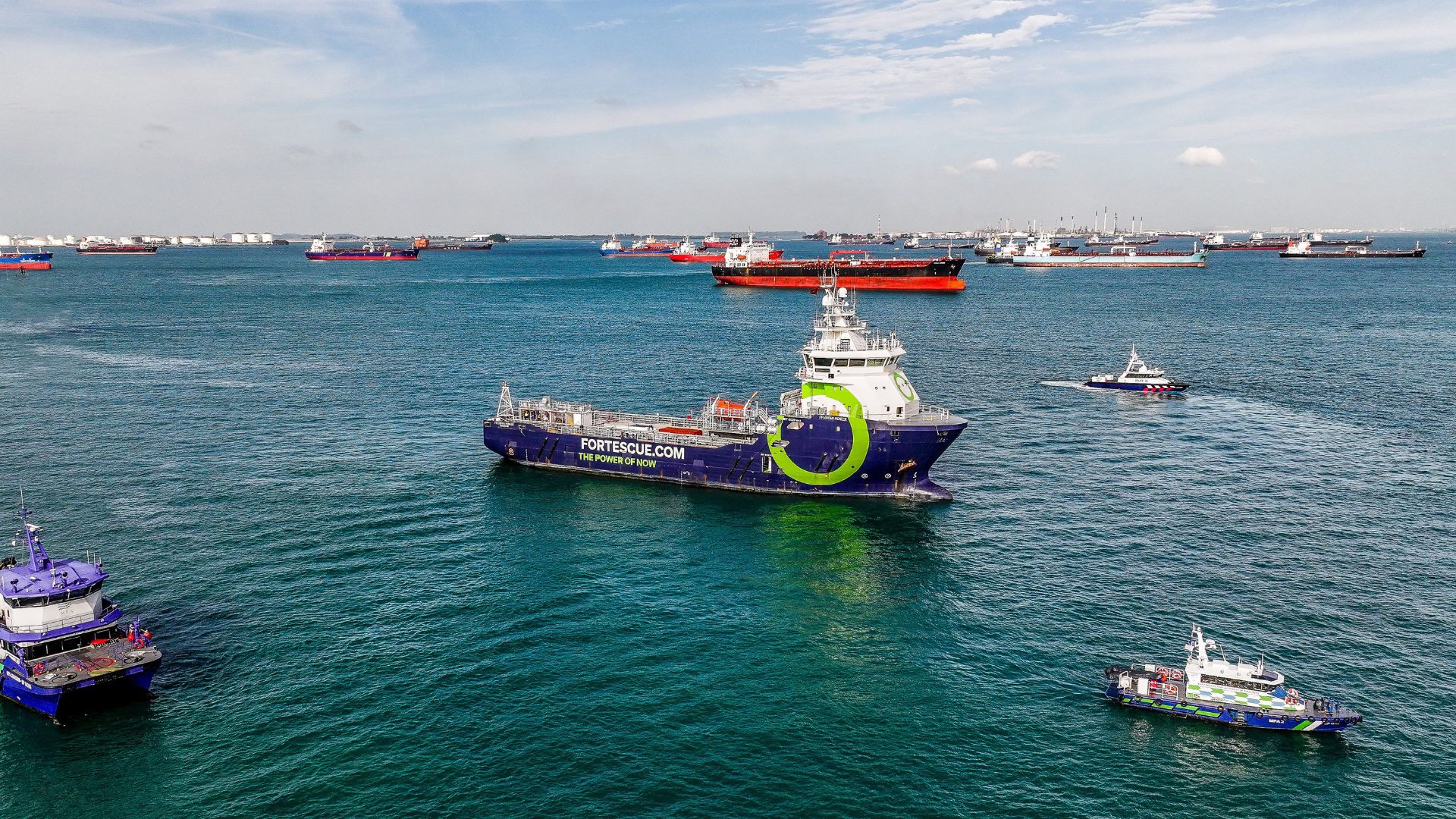Peter Willcox (L), the American captain of a Greenpeace ship, is seen at a court in Murmansk October 14, 2013. REUTERS/Dmitri Sharomov/Greenpeace/Handout
 By Maria Tsvetkova
By Maria Tsvetkova
MOSCOW, Oct 24 (Reuters) – For Peter Willcox, captain of a Greenpeace icebreaker seized by Russia, the worst thing about weeks in jail is not knowing what the future holds for himself and 29 others held over a protest against offshore oil drilling in the Arctic.
Russia on Wednesday dropped piracy charges against all 30 and replaced them with hooliganism, reducing the maximum jail term to seven years from 15, after President Vladimir Putin said last month that they were not pirates but did violate the law.
Willcox, a 60-year-old American, has now spent a month in detention in the northern Russian port city of Murmansk, where courts have denied bail to all 30 and ordered them held until at least late November.
“Bleak. Uncertain,” Willcox told Reuters when asked how he felt, responding to questions with handwritten answers delivered from a pre-trial detention centre by his Russian lawyer.
“Conditions are harsh: 23 hours plus a day in a small cell, not knowing the future and no contact with anyone,” he wrote, with the word “plus” underlined in answers given before Russia softened the charges.
A Greenpeace campaigner for more than 30 years, Willcox served as captain of the environmental group’s ship Rainbow Warrior when it was bombed and sunk by the French secret service in 1985. A photographer, Fernando Pereira, drowned.
“Losing Fernando Pereira was the worst. But this is more of an ordeal,” Willcox said.
The father of two teenage daughters, Willcox wrote with a blue ballpoint pen that he was sharing a cell with “one other person, who smokes a lot. He is friendly.”
Willcox was at the helm of the Arctic Sunrise during the Sept. 18 protest in which activists tried to scale Gazprom’s Prirazlomnaya drilling platform off Russia’s northern coast.
Greenpeace has said Russia’s treatment of its activists is meant to frighten off campaigners protesting against the exploration of natural resources in the Arctic, which Putin describes as important to Russia’s economic future and security.
Moscow says the environmental protesters violated a security zone around Prirazlomnaya, which is Russia’s first offshore oil platform in the Arctic and is scheduled to begin production by the end of the year after delays.
Coast guards forcibly boarded the Arctic Sunrise and, after Willcox refused to captain it under their control, towed it to Murmansk where the 28 activists and two journalists – citizens of 18 nations in all – were arrested.
HIGH RISKS
Other Arctic countries and global energy majors are also seeking a share of the region’s natural resources, a rush Greenpeace says could have tragic consequences for its fragile ecosystem, particularly in case of a spill, and global climate.
The case has damaged Russia’s image in the West and Kremlin critics see it as part of a repressive course charted by Putin since he returned to the Kremlin last year for a third term.
Drawing new criticism from Greenpeace, Russia on Wednesday refused to participate in a case logged with an international sea law tribunal in which the Dutch government is seeking the release of the activists pending trial.
Greenpeace’s main headquarters are in the Netherlands.
Russia took little action after a similar protest against the Prirazlomnaya platform in 2012.
Asked what he thought about the Russian government and its treatment of the Greenpeace activists, Willcox wrote: “What are they scared of? The truth?”
Asked why he did not quit after the sinking of the Rainbow Warrior during a campaign against French nuclear testing in the Pacific, Willcox said: “Because we thought if we scared a first world government so badly, we must be doing something right.
“The French government has NEVER apologised to Greenpeace,” Willcox wrote. “I doubt the Russian government will either.” (Writing by Gabriela Baczynska; Editing by Steve Gutterman and Mark Heinrich)
(c) 2013 Thomson Reuters, All Rights Reserved

 Join The Club
Join The Club











